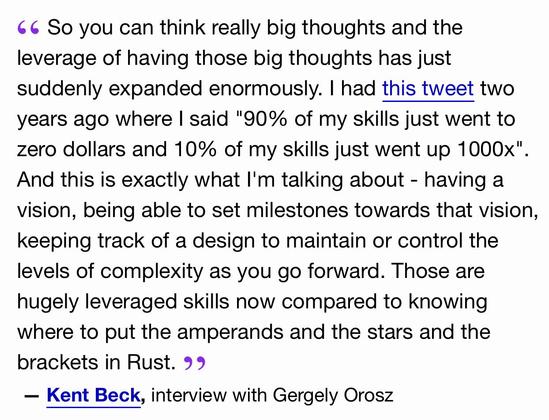I am a polite software developer and I am always committed to the bit. I will be your favorite app maker’s favorite app maker.
I am enamored by user-facing software, especially mobile, and especially iOS. Swift is my current weapon of choice but I will use any made-up word to solve any problem. I ship my side projects for free.
I run this single-user Mastodon instance in good faith and I intend to keep it that way.
| pronouns | he/him/his |
| website | https://kylehugh.es |
| github | https://github.com/kylehughes |
| threads | https://www.threads.net/@kyle_hughes |



